- TOP
- Media
- ALCONIX's BluePrint
- Protecting the Coast, Creating the Future: Building Corporate Bonds Through Beach Cleanups
Protecting the Coast, Creating the Future: Building Corporate Bonds Through Beach Cleanups
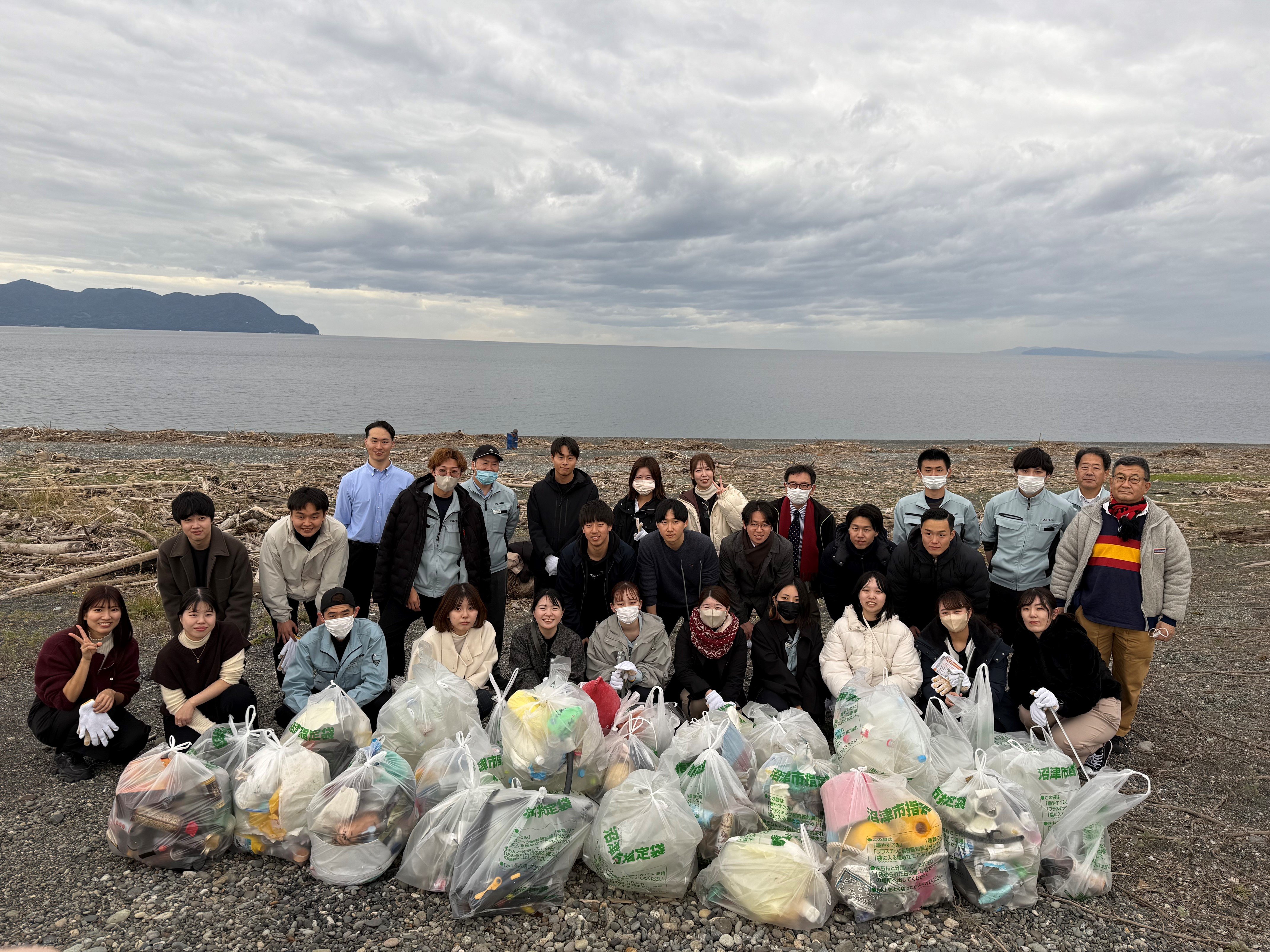
Hello, everyone!
This is S from ALCONIX’s Corporate Communications Department.
Today, I would like to introduce the Beach Cleanup Activity that I participated in with new employees in their first to third years, as well as young employees from our group company, FUJINE INDUSTRY CO., LTD., at Katahama Beach in Numazu City, Shizuoka Prefecture.
Our group, which handles non-ferrous metals (a valuable global resource), considers environmental issues as one of our key management challenges.
We actively engage in sustainability activities and promote the SDGs across the group. This activity was part of those efforts, aiming to address environmental issues, contribute to the local community, and foster interaction among young employees within the group.
I hope that introducing our specific initiatives will inspire you to take action on environmental issues.
Why the ALCONIX Group is Committed to Tackling Global Environmental Issues
Why does the ALCONIX Group engage in such hands-on activities?
To encourage each employee to recognize sustainability and community contribution activities as "personal matters" and to take the next step.
While it is important for the company to actively engage in sustainability activities, as a socially responsible company, we believe that each of us raising awareness and taking action in our daily lives leads to the promotion of the SDGs and the improvement of global environmental issues.
Additionally, this training and beach cleanup activity had three major objectives:
- Part of Our Community Contribution Activities
We are actively engaging in activities to contribute to local communities at each of our group companies nationwide. As our first step, we conducted a cleanup activity at Katahama Beach in Numazu City, Shizuoka Prefecture. You can see the majestic Mt. Fuji from Katahama Beach, and protecting this environment also means protecting the future of the region. - Sustainability Training for Young Employees
We aimed to foster a sense of personal responsibility among all employees by learning about environmental issues and taking action, and to cultivate awareness of SDGs promotion within the group. We hope this serves as an opportunity for employees to start practicing sustainable actions in their daily work and lives. - Fostering Interaction Within the Group
By working together towards the same goal, young employees from different departments and companies, who usually work in separate locations, had a great opportunity to deepen their connections and learn more about each other.
The organizer of this activity from our company said,
"We regularly share various training videos with employees, including those on marine plastics, but relying solely on that makes it difficult for employees to see these issues as 'personal matters.' That’s why we planned this activity. We also aimed to strengthen the sense of unity within the group through this initiative."
Through this activity, we were able to reflect on the specific actions required of us as individuals and as a company to protect the environment. As the saying goes, "Seeing is believing," and perhaps you, too, have experienced the profound learning that comes from firsthand experience.
What is the Marine Plastic Problem?
You’ve probably heard about the "marine plastic problem" recently, but do you know what it actually means?
Marine plastic refers to plastic waste that ends up in the ocean.
It is said that there are about 150 million tons of marine plastic floating in the sea, with over 8 million tons of new plastic waste flowing into the ocean every year.
To put it into perspective, that’s 15 tons per minute or 250 kilograms per second. It is even predicted that by 2050, the amount of plastic waste in the ocean will exceed the amount of fish. Shocking, isn’t it?
This plastic waste has a significant impact on marine life.
For example, sea turtles often mistake plastic bags for jellyfish and eat them. Small plastic particles (microplastics) can also accumulate in the bodies of fish. Eating these fish could indirectly affect humans as well.
Although the ALCONIX Group does not handle plastics, we recognize the marine plastic problem as an urgent and critical issue that requires action, and we are taking steps toward its resolution. Later, I will share an example of our efforts.
The Marine Plastic Problem and What We Can Do
Before heading to the beach for the activity, we invited Ms. Takayanagi from the Shizuoka Prefecture Waste Recycling Division to give a lecture on "The Marine Plastic Waste Problem."
The lecture covered topics such as the impact of marine plastics on the environment and living organisms, and the types of waste that actually wash ashore on Shizuoka’s beaches.
She also shared the following message:
"First, I want everyone to learn about environmental issues, starting with the marine plastic waste problem. Once you understand the current situation, I hope you will take action to address these challenges and promote efforts to reduce plastic usage in your business activities."
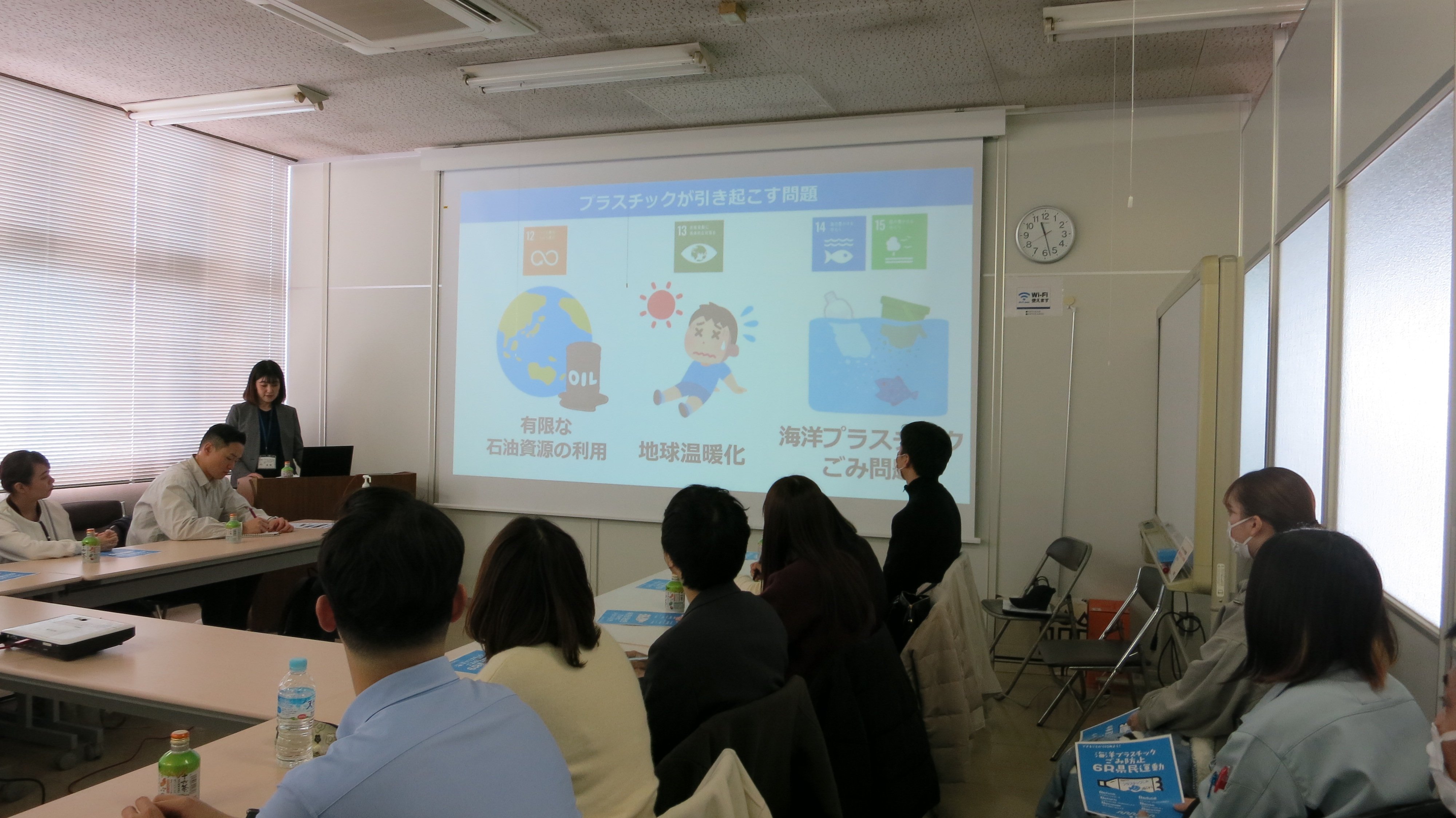
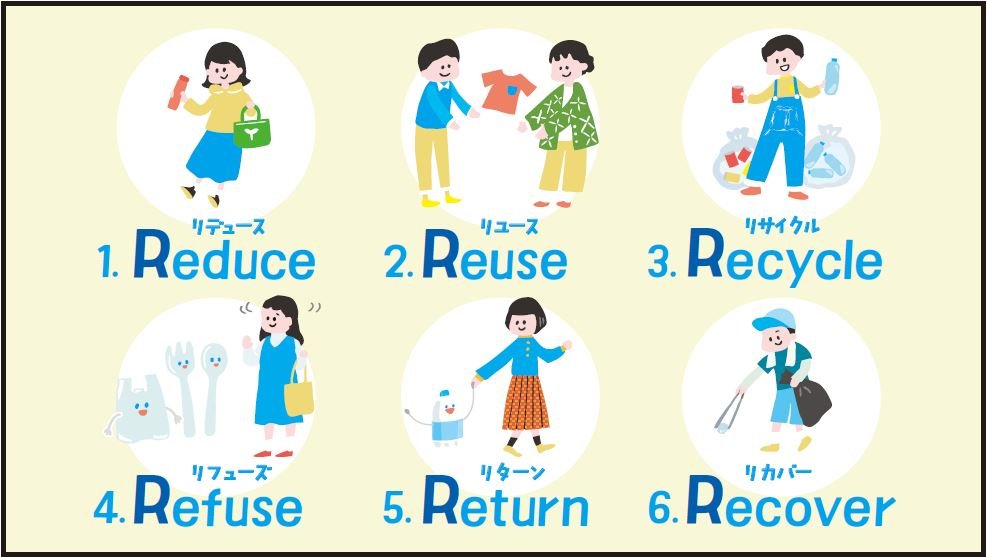
Participants shared their thoughts, saying,
"The plastic issue no longer feels like someone else's problem; it now feels much closer to home," "I realized that starting with small, actionable steps can contribute to protecting the Earth in the future," and
"It was a great opportunity to think about what sustainable practices I can personally implement."
Many participants expressed that what they had previously perceived as a vague issue unrelated to themselves became a very personal and pressing matter through the lecture. They recognized the importance of small individual efforts in addressing these challenges.
The lecture also provided a good opportunity to learn about Shizuoka Prefecture’s "6R Citizen Movement." Personally, I have started carrying a reusable bottle and refusing plastic bags, spoons, and straws at convenience stores, and I feel that my awareness has changed. Why not start with "Refuse"?
Tackling Plastic Waste Reduction with Waterlogic
Next, Mr. Miyagi from our Business Strategy Department gave a lecture on "waterlogic and SDGs.
Did you know that the water we drink daily, which we often take for granted in Japan, is a major issue worldwide?
It is said that about 40% of the plastic waste washed ashore on beaches consists of beverage bottles.
As a result, discussions on restricting the use of beverage bottles have begun globally, and more people in Japan are using reusable bottles.
In this context, water dispensers that connect directly to water supply systems are gaining attention. Unlike conventional water dispensers that require bottled water, these systems connect directly to the water supply, filtering tap water to provide safe and delicious water without the need for bottles.
Our product, "waterlogic," is one such water dispenser. It uses advanced purification technology and filtration systems to remove bacteria and other contaminants. This helps reduce plastic waste and addresses social issues such as PFAS (*1) contamination, ensuring access to safe water.
He also mentioned
"By installing waterlogic as a free water supply spot in the community, we can reduce the consumption and disposal of plastic bottles in the area, leading to community-wide awareness."
Participants shared their impressions:
"I realized that small actions, like using a reusable bottle, can contribute to sustainability."
"I felt proud that my company’s business contributes to reducing plastic bottles. While individual efforts are important, I believe systems that combine business and social contribution are essential moving forward."
Results of the Beach Cleanup Activity
In the afternoon, we moved to Katahama Beach and conducted the actual beach cleanup.
Can you imagine how much trash is on the beach?
At first glance, the beach appeared clean, but upon closer inspection, we discovered more trash than we expected.
In particular, there was a significant amount of plastic waste, such as PET bottles and food packaging, which made us realize the severity of the marine plastic problem.
In just about an hour, we collected approximately 130 kilograms of trash!
Participants shared their thoughts:
"I was overwhelmed by the amount of plastic waste washed ashore."
"Seeing the scattered trash on the beach made me realize that this issue, which I had thought of as distant, is actually very real and personal."
Many participants also noticed that there was more trash with Japanese labels than foreign ones, which made them realize that their own lives are directly connected to this issue.
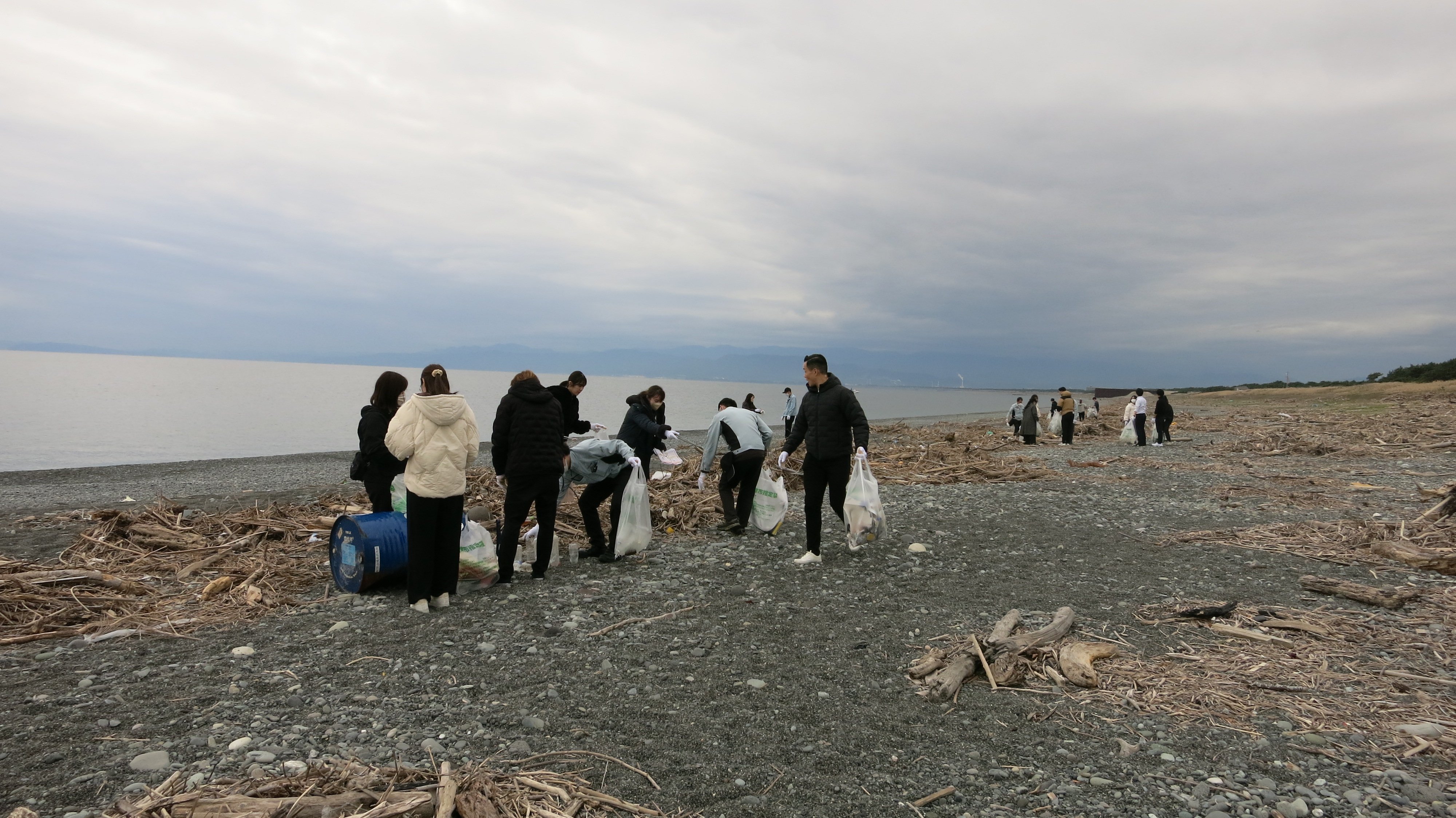
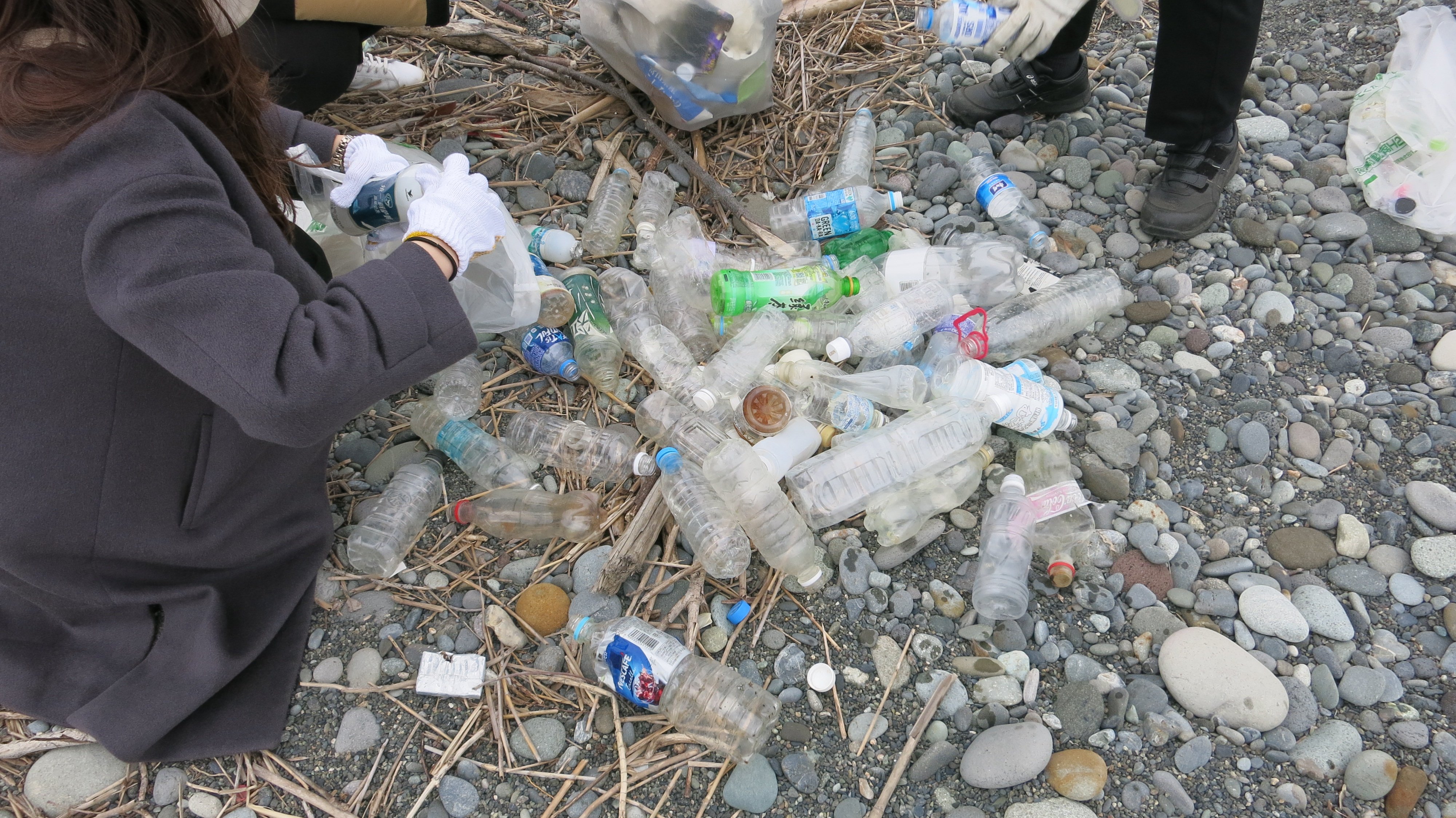
Mr. Yagi from FUJINE INDUSTRY CO., LTD. (General Affairs Manager), who participated in the activity, said,
"Even just one hour of beach cleanup revealed a significant amount of PET bottles and plastic containers. I strongly felt the need to use reusable bottles more actively and as a matter of course. Moving forward, we plan to conduct beach cleanup activities independently several times a year."
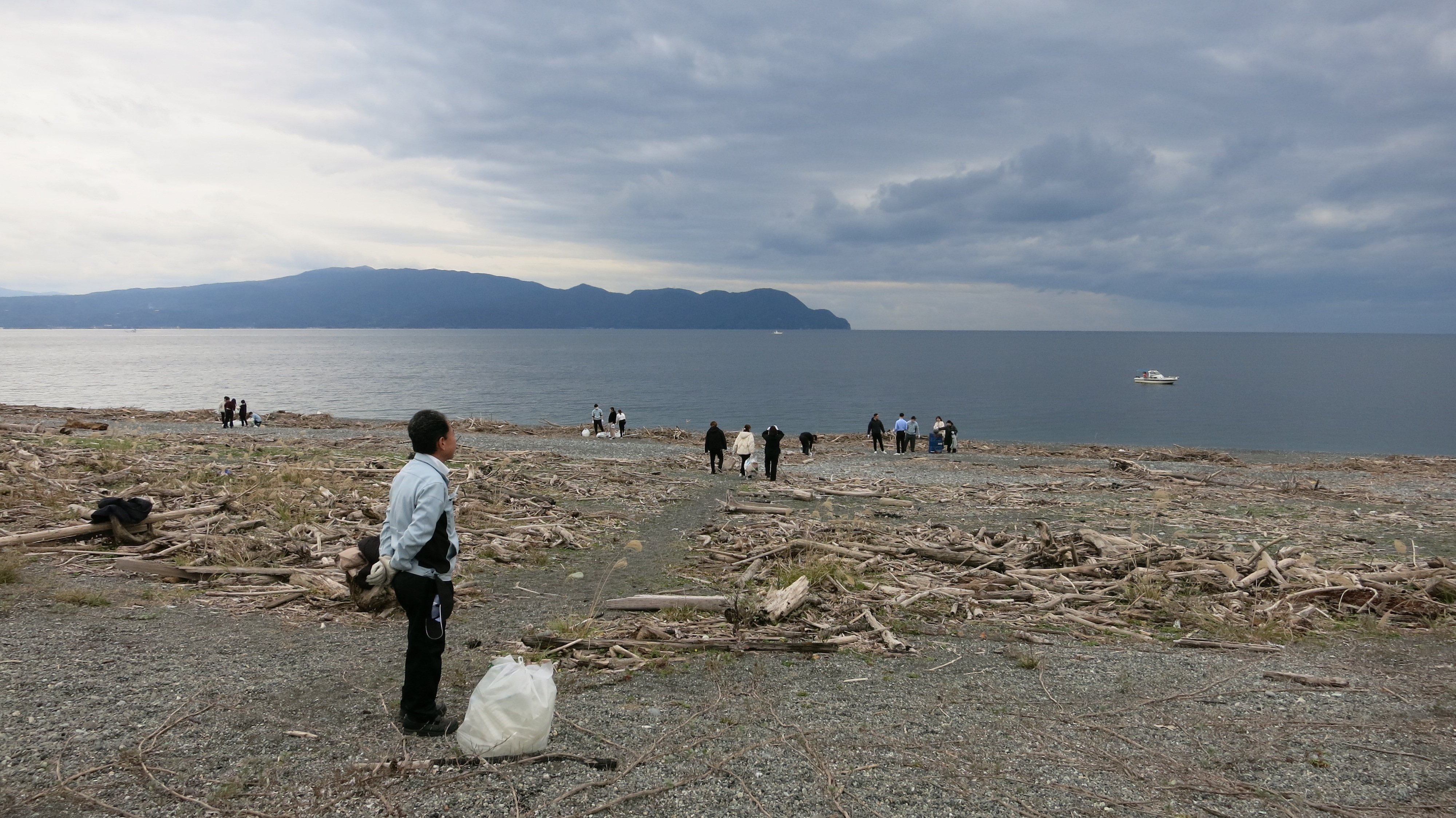
Observing the young employees actively taking initiative, Mr. Yagi felt a sense of accomplishment at Katahama Beach.
Future Prospects
Through this training and beach cleanup activity, we were reminded that environmental issues are deeply connected to our daily lives. The connections within our group were also strengthened, and we are now more determined than ever to work together on these issues.
ALCONIX will continue to collaborate with its group companies to carry out environmental conservation and community contribution activities.
We aim to create more opportunities for employees to think about what they can do and take action on the SDGs as personal matters. Additionally, we plan to further develop plastic waste reduction projects, such as waterlogic, and expand more effective activities based on the lessons learned from this training.
So, what did you think?
In this article, we introduced the ALCONIX Group’s beach cleanup activity as part of our efforts to contribute to the local community and promote the SDGs.
Why not start with small actions in your daily life?
For example, you can carry a reusable bottle, refuse plastic bags, use reusable bags, or participate in local cleanup activities.
Small steps can lead to significant changes in protecting the future of our planet.
Why not join us in taking action for the future?
(※1) Per- and PolyFluoroAlkyl Substances(Organofluorine compound)
- Engaged in the manufacturing and processing of air conditioning equipment components (tanks and pipes), machining of compressor parts (cylinders and bearings), and unit assembly.
- Actively promoting the SDGs, we were registered as a "Numazu City SDGs Promotion Partner" in fiscal year 2024.







